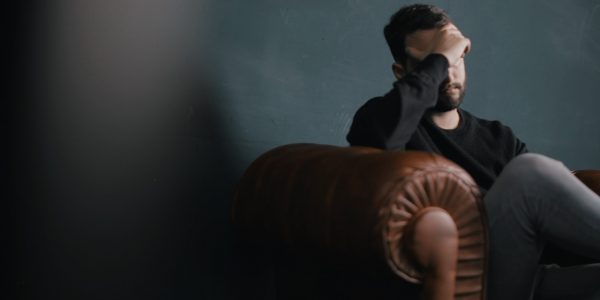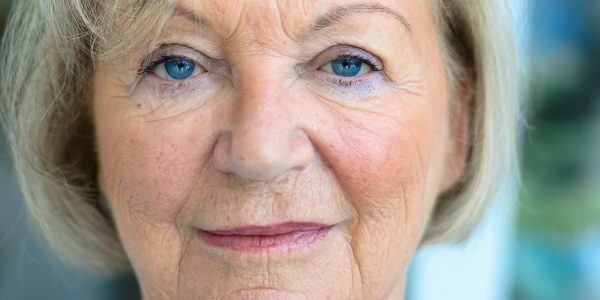LISTEN TO THIS ARTICLE:
These are the stories of three people whose lives have been turned upside down by their desire to become parents.
Infertility affects 1 in 6 couples, and in 50% of those cases the cause may be male infertility, which is increasing around the globe. In achieving economic security or career goals, many women must delay childbearing often until their late 30’s and early 40’s, when it is harder to get pregnant. Thus, more couples are having to turn to assisted reproductive technologies (ART) like IVF to help them build a family.
The shame and stigma surrounding infertility, combined with the intense psychological stress of the fertility journey, pose serious challenges to emotional health and well-being. For those with pre-existing mental health conditions, infertility can be painfully disruptive and even dangerous.
“Fertility warriors,” as they call themselves, can often find solace and healing by sharing their stories to let others know they are not alone. We extend our sincere thanks to Abi, Karen, and Kevin for sharing their powerful and deeply personal stories with us.
Abi, age 38
Infertility Rollercoaster ride #1: 2.5 years…Ovarian drilling, pelvic surgery, PCOS, endometriosis, one child born by in-vitro fertilization (IVF).
Ride #2: 1 year and counting…Frozen embryo transfer (FET), one pregnancy loss, and one failed cycle.
It’s funny because I’d always had this feeling that I was going to struggle to get pregnant. I admire people who can roll with it and see what nature brings no matter how long it takes. But I’m not one of those people, I wanted answers!
Abi has a take-charge kind of personality. She headed to her doctor and requested more testing after only several months of trying to conceive (TTC). Unfortunately, it would be another year of confusing blood tests, inconclusive ultrasounds, and irregular menstrual cycles before Abi got any kind of plan for how to proceed.
Abi had two previously diagnosed conditions, endometriosis and polycystic ovarian syndrome (PCOS), both of which can make getting pregnant more difficult. She had two prior operations to remove ovarian cysts, so she was no stranger to the gynecologist or surgical procedures. Nevertheless, her past experiences were not sufficient preparation for the huge challenges of the fertility journey she was about to embark on.
“As we entered our second year and my cycles seemed to be worsening, I became more desperate. All these people who’d started trying way after me were getting pregnan. I was having to attend baby showers left, right, and center. It didn’t help that my closest circle of girlfriends (bless them) seemed to be the most fertile women on the planet, all becoming pregnant immediately or even by accident! I thought to myself: How is that even possible?!”
More surgery
In an emotionally charged state of desperation, loneliness, and impatience, Abi underwent another surgery on her ovaries. During the operation, the doctor found scar tissue from the prior surgeries that the doctor believed would make it nearly impossible for her to get pregnant. She would need ART such as in vitro fertilization (IVF). IVF is a procedure in which mature eggs are collected from a woman’s body and fertilized with sperm in a laboratory. Once the egg is fertilized, the embryo is transferred back into her uterus.
Unfortunately for Abi, the rollercoaster’s uphill climb grew steeper. She had a complication from the most recent surgery in which part of her bowel was injured. After waiting 12 hours in the emergency room, she had to have an emergency procedure to remove the damaged portion of bowel. To make matters worse she then developed sepsis – an overwhelming body infection – and needed to stay in the hospital longer than expected. All this left her feeling sick, exhausted, and questioning her decisions.
I think this was my low point. My dreams seemed so far away, and I felt that in my desperate quest I’d brought all this on myself. There was a moment of complete surrender while in the hospital and I think this ultimate low was the beginning of a shift in mindset for me.
Recovery
During the four-month-long recovery from surgery, Abi found herself overwhelmed by fear and despair. Fortunately, she was able to reach the take-charge spirit she’d always had and she decided to make some big changes. She quit her high-pressure job as a management consultant. She headed to India for a four-month Ayurvedic cleanse and a type of spiritual retreat called a panchakarma. While these steps seem more extreme than what some might do, taking the wheel and rerouting her rollercoaster’s course gave her a sense of control and helped to reduce stress.
Upon her return, she and her partner attempted IVF, a long shot as doctors told them her estimated chances of success with this method were a mere 15%. Happily, they beat the odds and Abi got pregnant after just one round.
“I think unless you’ve been through it no one can understand what it feels like. For me, the inability to control my life, and the monthly cycle of hope and desperation was really hard. But the worst thing was the fear. Sometimes the fear that it would never happen took hold of me and I just couldn’t shake it.”
Abi and her husband have jumped back on the rollercoaster for a second ride as they hope to continue to grow their family. True to her warrior nature, she refuses to sit back and wait.
Karen, age 41
Infertility Rollercoaster Ride #1: 3.5 years… Two rounds of intrauterine insemination (IUI), 5 rounds of IVF, 1 successful pregnancy
Infertility Rollercoaster Ride #2: 1 year and counting…, one frozen embryo transfer (FET), and one pregnancy loss.
“By age 34, the time felt right to embark on the next chapter of our lives and to start a family. Just like that …or so I naively thought! Of course, I knew it wasn’t always that straightforward, but never in my wildest dreams did I think we would become that couple.”
Karen’s introduction to the fertility rollercoaster was different from Abi’s because once she decided to start a family, she got pregnant right away. Unfortunately, that pregnancy did not last, and was the first of many pregnancy losses Karen and her partner experienced. After the first early pregnancy loss, Karen coped by going, as she puts it, “full steam into fertility mode.”
“I researched and read up on everything I could about how to naturally increase fertility. I found a wonderfully supportive fertility acupuncturist. Even more, I tried meditating (but mostly fell asleep), I did fertility detoxes, I tried yoga. You name it – I probably tried it. I even had my husband on different regimens. He was having maca smoothies, spirulina shots, goji berries, and brazil nut snacks as an after-dinner treat, plus handfuls of vitamins every day. He’d come home wondering what concoctions I’d have for him that night.”
Heading to the doctor
After several months of unsuccessful attempts to get pregnant, Karen and her partner headed to her doctor for some answers. For the next year, the couple endured countless tests, evaluations, and procedures. Frustratingly, everything kept coming up normal.
Karen recalls how three different doctors told her: “You are young, you have plenty of time, it will happen.” These words were not reassuring to her. Rather, she felt patronized and disappointed. She needed answers.
After two failed rounds of IUI, Karen and her husband moved on to IVF. For the first round, their prospects for pregnancy looked good. Doctors collected 13 eggs from Karen, and 10 of them successfully fertilized. Unfortunately, after two days, all of the embryos showed signs of fragmentation (when parts of the cells break away during development).
Ups and downs
When they arrived at the hospital ready for the embryos to be transferred, Karen and her husband were told that none of the embryos were “good quality.” They decided with their doctor to transfer two of the healthiest looking ones into her uterus.
We were devastated. I resigned myself to the fact that it [IVF] would be unsuccessful. It was a shock when at four weeks I actually had a positive pregnancy test, I just hadn’t believed it would work. But the excitement was short-lived. A few days later I began bleeding and miscarried.
Determined to try again, Karen and her husband went through a second IVF cycle. Unfortunately, their embryos again showed high rates of fragmentation and none could be transferred.
A third try at IVF sadly ended in another pregnancy loss, this time at nine weeks. Then Karen had yet another miscarriage after a fourth IVF. This time was even worse because, at the same time she was miscarrying, she had to be hospitalized for back surgery. Karen remembers this as one of the most difficult times of her fertility ride.
“I was a complete mess emotionally and physically and felt like I couldn’t take much more. Up until that point I had been able to keep pushing forward by focusing on the next steps. That got me through. Unable to consider treatment again until I’d healed, I was forced to take a break for a few months. At the time I was frustrated with yet more waiting. I now realize I really needed that time to recharge.”
Taking some time off
It can be incredibly hard for couples to agree to take a break mid-ride on the fertility rollercoaster. With so much time and money already invested and racing against biological clocks, many couples struggle with the decision to rest and heal. In Karen’s case, her back injury forced her to take that break for five long months. When she was ready to try again, she had a frozen embryo transfer (FET). She was able to successfully carry the pregnancy to term. She remembers how hard it was for her to take this break because pushing forward was her coping mechanism:
“When I have been in these kinds of situations before, my way of coping is to look forward. Focusing on trying again helps me to get through.”
Secondary infertility is the inability to conceive a second pregnancy after having one successful pregnancy carried to term. It plagues many couples with experiences resembling post-traumatic stress disorder (PTSD). Both Karen and Abi decided to go back for a second try, despite the emotional toll of their first go-rounds.
COVID piles on
Unfortunately, their attempts at transferring frozen embryos from their prior IVF cycles were unsuccessful. Both had the added trauma of experiencing a pregnancy loss during the COVID-19 pandemic. Navigating fertility treatments during lockdown introduced a whole new level of uncertainty and lack of control for both women. Having to quarantine further isolated them as they grieved their pregnancy losses.
“I am one of the lucky ones that had commenced a FET cycle before the lockdown due to Coronavirus. Therefore, I was able to complete my treatment. I can only imagine how painful it was for those waiting to start who were told their cycle would be postponed indefinitely.” -Karen
Emotional struggles
Unfortunately, for many couples, enduring pregnancy loss is a common part of fertility treatment. Despite how often miscarriage happens (1 out of every 4 recognized pregnancies ends in miscarriage), many do not acknowledge the profound pain that accompanies this loss. Stigma often prevents us from formally grieving miscarriages, especially very early pregnancy losses. But with each unsuccessful pregnancy, a couple must grieve the loss of their hopes and dreams for what that pregnancy could have been.
“I didn’t know what to do with myself. I felt numb and helpless. Waking up in the morning was the hardest part of the day. There was a split second upon waking when everything seemed calm and normal, then I’d remember, and the pain came right back.”
Everyone has their way of coping with grief. For Karen, it helps to distracts herself from the pain. She does not isolate. Instead, she speaks openly about her pregnancy losses, over social media and within the infertility community.
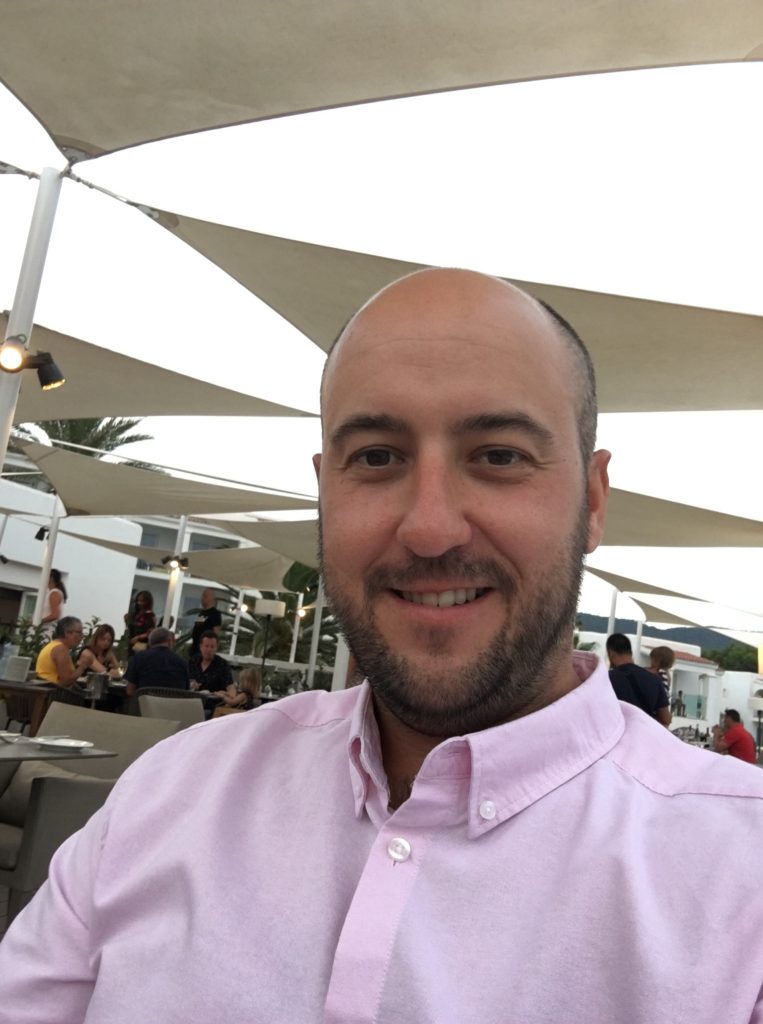 Kevin, age 35
Kevin, age 35
Fertility Rollercoaster Ride: 8 years and counting… Sertoli cell-only syndrome, 1 microsurgical testicular sperm extraction (micro TESE), one failed IVF cycle, one ICSI (intracytoplasmic sperm injection)/IVF cycle
After several months of unsuccessful attempts to start a family, Kevin and his girlfriend at the time decided to go to the doctor to find out why pregnancy wasn’t happening for them. His semen analysis showed an abnormally low number of sperm (called azoospermia), so Kevin was referred to a urologist. He underwent a surgical procedure called a micro-TESE (pronounced micro tess-ee). In a micro-TESE, with the patient under general anesthesia, the surgeon uses a microscope to try and retrieve sperm from the tiny tubules within the testicles. When Kevin woke up from anesthesia, his doctor told him that they were unable to find any sperm.
“Just like that, I was diagnosed as infertile. This is when I really started to take things seriously! A few days later I had an appointment with a consultant who told me, “Sorry there’s nothing we can do for you.” They said my only options were either adoption or the use of a sperm donor. That was it and, with that soul-crushing news, I was out the door and on my own.”
Sertoli Cell-Only Syndrome
Kevin’s diagnosis was a hereditary condition called Sertoli cell-only Syndrome. Unfortunately, no one offered any emotional support, resources, or help processing this life-changing news.
“Looking back now, I realize I was naive. I didn’t realize the impact it would have on my life. And I don’t think I felt upset at first. I was more lost. To be honest, for some time I was in denial – I thought there must have been a mistake. You hear these stories in the news, where people have been told they can’t have kids and end up having them. Maybe I was one of them.”
Processing the news
Although Kevin was able to talk with his father, his diagnosis ultimately caused the breakup of his relationship with his girlfriend. This was Kevin’s lowest point.
“I felt that I had lost everything, and the realization set in. For about a year after, I was out of control. I was so angry, but I felt like I couldn’t show or tell anyone. I felt too embarrassed to talk to friends. I’m ashamed to say I was sleeping around, drinking a lot, and even taking drugs.”
Kevin experienced a confusing jumble of emotions so typical of grief: anger, denial, loneliness, anxiety, and sadness, and alone without any support. At first, he told no one, “I let the anger eat me up inside.” Eventually, he was able to talk with two or three male friends about his infertility. Unfortunately, he felt frustrated by their lack of understanding of just how awful he felt.
Kevin sought counseling, which he believes helped him get out of this dark place. Listening to podcasts about male fertility, finding other male fertility warriors on social media, exercising, and focusing on better nutrition all helped him begin to heal.
Dating difficulties
Dating as a sterile male was yet another challenge. But in time, he did meet a woman he had feelings for. “Our first date was amazing. But then she started talking about how she wanted a family in the future. I felt gutted. I decided to tell her the next day that we should just be friends. It wasn’t really what I wanted, but it helped me protect myself (and her, I thought). This kind of thing had happened a lot. I would meet someone and then, as soon as I got close to them, or we’d been on a few dates and the subject of kids came up, I would blow them off because I knew I couldn’t give them a family, which they so desired.”
Fortunately, this time the connection between them was not so easily put off. Kevin had a feeling that she was “the one,” and a few weeks later he told her the truth about his diagnosis. To his relief, she expressed understanding, was supportive, and certainly still interested in continuing their relationship. The two later married.
Finding “the one”
Fast forward five years; they have been through two unsuccessful attempts at IVF using donor sperm. The biggest challenge for Kevin around the idea of using donor sperm has been to embrace the idea that his child with not share his DNA. His ride on the infertility roller coaster continues, as he and his wife save up money for their next IVF cycle. This time a very sophisticated procedure known as intracytoplasmic sperm injection (ICSI). ICSI is different from usual IVF (where many sperm are mixed with an egg). With ICSI, an embryologist selects a single sperm and injects it into an egg. It increases the chances of successful IVF because the embryologist is able to “hand-pick” the healthiest-looking sperm. ICSI is often used when a couple has previously experienced unsuccessful IVF cycles.
The whole process was a little bit daunting. I felt so helpless and upset at times. How did it come to this? I felt like I’m only here to hold my partner’s hand, like that’s all I’m good for!
Where are they now?
Abi and Karen have started a unique app-based fertility support platform to help other men and women navigate infertility. The Fertility Circle helps Karen and Abi build another kind of family while they attempt to add to their own.
Kevin remains passionate about changing the way we talk about male infertility and supporting men struggling with fertility issues. Like Abi and Karen, he channels his feelings of frustration and helplessness into activism, creating a community for men trying to conceive with infertility. His website, Facebook and Instagram pages are some of the few resources out there for men looking to break the silence around male infertility.
Abi, Karen, and Kevin, through sharing their stories, are helping to make the ride a bit easier for themselves and others. They all speak to the healing power of knowing you are not alone. Reading or listening to other people’s infertility stories can help you make sense of the confusing range of emotions infertility stirs up. You can read about other kinds of support resources available in WebShrink’s recent article on the mental health risks of infertility.

 Learn
Learn Stories
Stories ID Symptom
ID Symptom News
News Find Help
Find Help
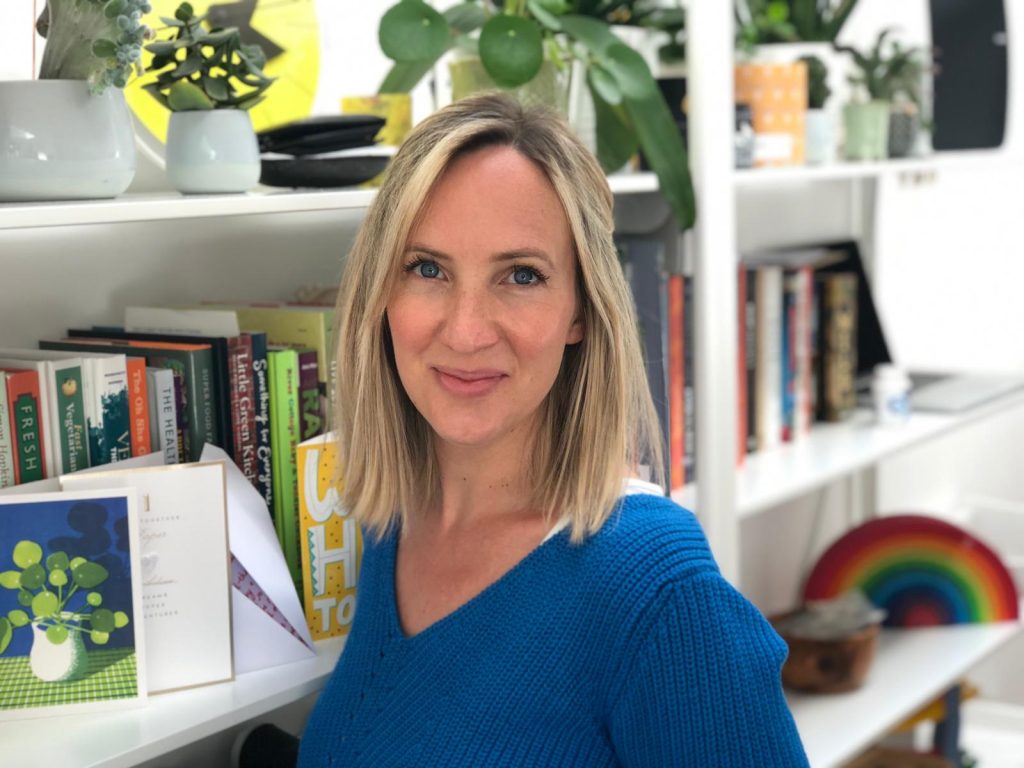
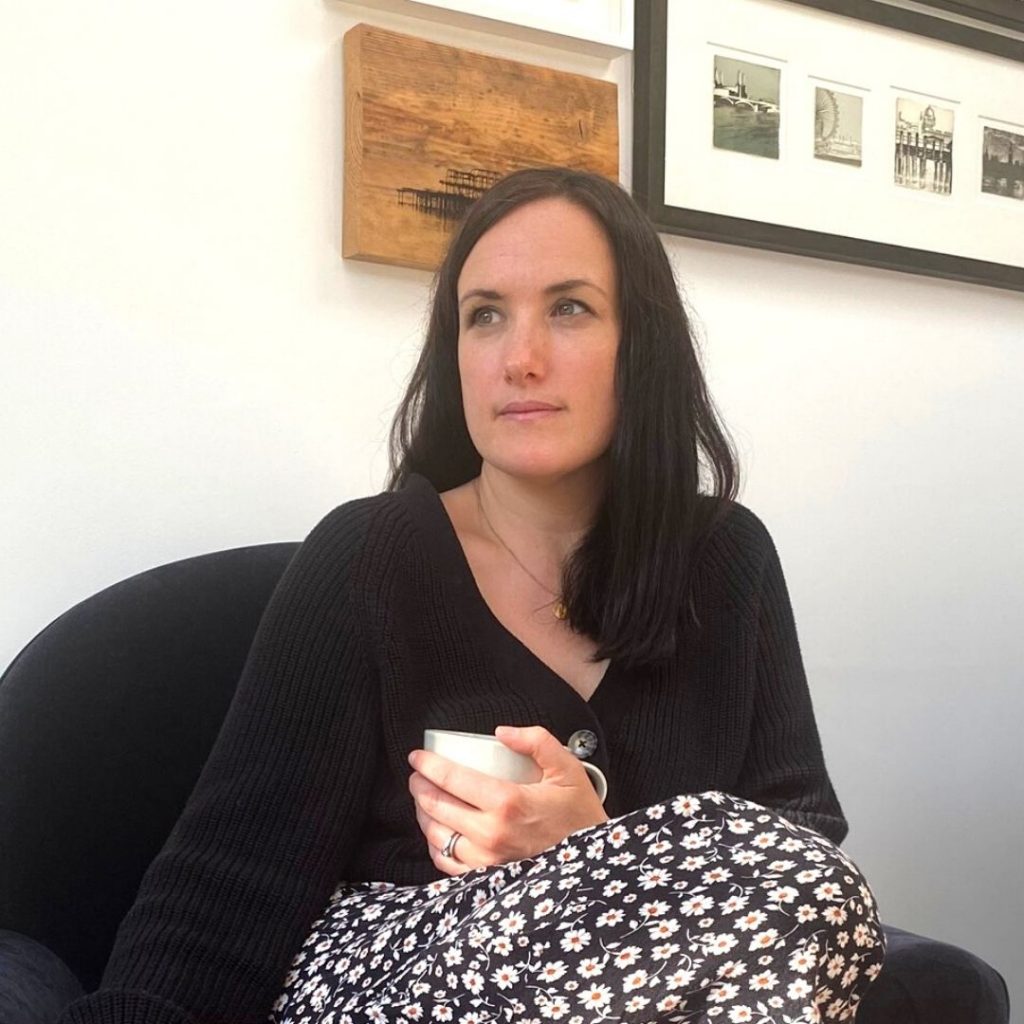
 Share
Share
 Share
Share
 Share
Share
 Share
Share

